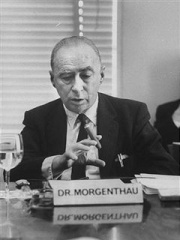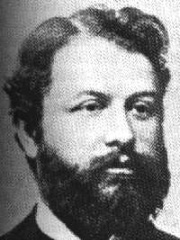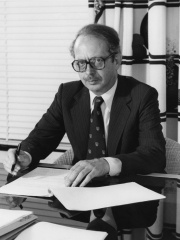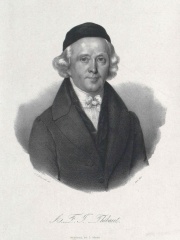



The Most Famous
POLITICAL SCIENTISTS from Germany
This page contains a list of the greatest German Political Scientists. The pantheon dataset contains 46 Political Scientists, 5 of which were born in Germany. This makes Germany the birth place of the 2nd most number of Political Scientists.
Top 5
The following people are considered by Pantheon to be the most legendary German Political Scientists of all time. This list of famous German Political Scientists is sorted by HPI (Historical Popularity Index), a metric that aggregates information on a biography's online popularity.

1. Hans Morgenthau (1904 - 1980)
With an HPI of 70.41, Hans Morgenthau is the most famous German Political Scientist. His biography has been translated into 50 different languages on wikipedia.
Hans Joachim Morgenthau (February 17, 1904 – July 19, 1980) was a German-American jurist and political scientist who was one of the major 20th-century figures in the study of international relations. Morgenthau's works belong to the tradition of realism in international relations theory; he is usually considered among the most influential realists of the post-World War II period. Morgenthau made landmark contributions to international relations theory and the study of international law. His Politics Among Nations, first published in 1948, went through five editions during his lifetime and was widely adopted as a textbook in U.S. universities. While Morgenthau emphasized the centrality of power and "the national interest," the subtitle of Politics Among Nations—"the struggle for power and peace"—indicates his concern not only with the struggle for power but also with the ways in which it is limited by ethical and legal norms. In addition to his books, Morgenthau wrote widely about international politics and U.S. foreign policy for general-circulation publications such as The New Leader, Commentary, Worldview, The New York Review of Books and The New Republic. He knew and corresponded with many of the leading intellectuals and writers of his era, such as Reinhold Niebuhr, George F. Kennan, Carl Schmitt and Hannah Arendt. At one point in the early Cold War, Morgenthau was a consultant to the U.S. Department of State when Kennan headed its Policy Planning Staff, as well as a second time during the Kennedy and Johnson administrations until he was dismissed by Johnson when he began to publicly criticize American policy in Vietnam. For most of his career, however, Morgenthau was esteemed as an academic interpreter of U.S. foreign policy.

2. Georg Jellinek (1851 - 1911)
With an HPI of 69.49, Georg Jellinek is the 2nd most famous German Political Scientist. His biography has been translated into 27 different languages.
Georg Jellinek (16 June 1851 – 12 January 1911) was a German public lawyer and was considered to be "the exponent of public law in Austria".

3. Ralf Dahrendorf (1929 - 2009)
With an HPI of 67.67, Ralf Dahrendorf is the 3rd most famous German Political Scientist. His biography has been translated into 40 different languages.
Ralf Gustav Dahrendorf, Baron Dahrendorf, (German pronunciation: [ˈʁalf ˈɡʊstaf ˈdaːʁəndɔʁf]; 1 May 1929 – 17 June 2009) was a German-British sociologist, philosopher, political scientist and liberal politician. A class conflict theorist, Dahrendorf was a leading expert on explaining and analysing class divisions in modern society. Dahrendorf wrote multiple articles and books, his most notable being Class and Conflict in Industrial Society (1959) and Essays in the Theory of Society (1968). During his political career, he was a Member of the German Parliament, Parliamentary Secretary of State at the Foreign Office of Germany, European Commissioner for Trade, European Commissioner for Research, Science and Education and Member of the British House of Lords, after he was created a life peer in 1993. He was subsequently known in the United Kingdom as Lord Dahrendorf. He served as director of the London School of Economics and Warden of St Antony's College, University of Oxford. He also served as a professor of sociology at a number of universities in Germany and the United Kingdom and was a research professor at the Berlin Social Science Research Center.

4. Anton Friedrich Justus Thibaut (1772 - 1840)
With an HPI of 63.34, Anton Friedrich Justus Thibaut is the 4th most famous German Political Scientist. His biography has been translated into 18 different languages.
Anton Friedrich Justus Thibaut (4 January 1772 – 20 March 1840), was a German jurist and musician.

5. Carl Joachim Friedrich (1901 - 1984)
With an HPI of 57.16, Carl Joachim Friedrich is the 5th most famous German Political Scientist. His biography has been translated into 16 different languages.
Carl Joachim Friedrich ( FREE-drik, German: [kaʁl ˈjoːaxɪm ˈfʁiːdʁɪç]; June 5, 1901 – September 19, 1984) was a German-American professor and political theorist. He taught alternately at Harvard and Heidelberg until his retirement in 1971. His writings on state and constitutional theory, constitutionalism and government made him one of the world's leading political scientists in the post-World War II period. He is one of the most influential scholars of totalitarianism.
People
Pantheon has 5 people classified as German political scientists born between 1772 and 1929. Of these 5, none of them are still alive today. The most famous deceased German political scientists include Hans Morgenthau, Georg Jellinek, and Ralf Dahrendorf.
Deceased German Political Scientists
Go to all RankingsHans Morgenthau
1904 - 1980
HPI: 70.41
Georg Jellinek
1851 - 1911
HPI: 69.49
Ralf Dahrendorf
1929 - 2009
HPI: 67.67
Anton Friedrich Justus Thibaut
1772 - 1840
HPI: 63.34
Carl Joachim Friedrich
1901 - 1984
HPI: 57.16
Overlapping Lives
Which Political Scientists were alive at the same time? This visualization shows the lifespans of the 5 most globally memorable Political Scientists since 1700.

